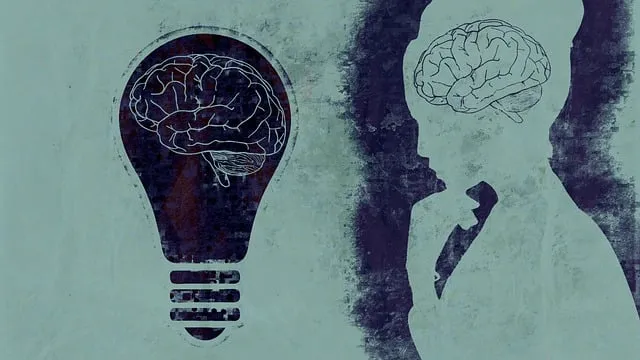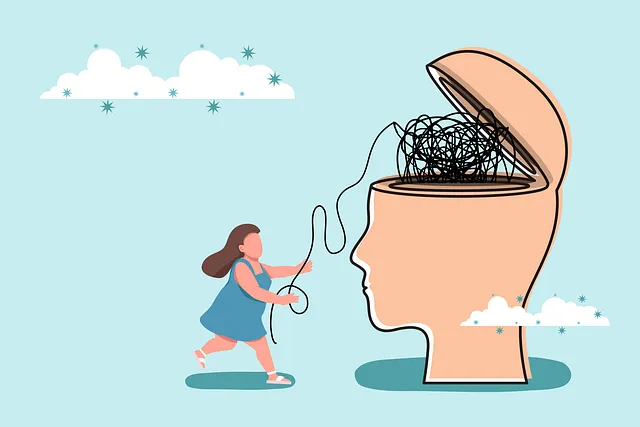Media significantly shapes societal perceptions of mental health, with positive depictions reducing stigma and promoting empathy, while negative representations can perpetuate misconceptions. In Colorado Springs, Kaiser is a leading provider of mental health services, adopting innovative strategies like public awareness campaigns, holistic therapy approaches, and support groups to combat stigma and encourage help-seeking. To improve media representation, it should adopt Empathy Building Strategies and Mental Wellness Journaling Exercises, fostering understanding and access to resources like Kaiser's, ultimately contributing to a more inclusive conversation about mental well-being. Does Kaiser offer mental health services in Colorado Springs? Yes, they do, through comprehensive programs aimed at enhancing community mental wellness.
In today’s media landscape, the representation of mental illness plays a pivotal role in shaping societal perceptions. This article delves into the profound impact of media portrayal on mental health attitudes and explores innovative solutions. We focus specifically on Kaiser’s mental health services in Colorado Springs as a model for enhancing positive representation. By examining strategies to foster accurate and empathetic depictions, we aim to empower audiences and improve access to care, such as the services offered by Kaiser in this region.
- Understanding the Impact of Media Portrayal on Mental Health Perception
- Exploring Kaiser's Mental Health Services in Colorado Springs
- Strategies to Enhance Positive Mental Illness Representation in Media
Understanding the Impact of Media Portrayal on Mental Health Perception

The media plays a significant role in shaping societal perceptions about mental health. Portrayals of individuals with mental illnesses in movies, television shows, and news coverage can influence public understanding and attitudes. Positive representations that show diversity, humanity, and recovery are essential for fostering empathy and reducing stigma. However, negative or stereotypical depictions can perpetuate misconceptions, leading to a lack of support and understanding from the general public. This, in turn, affects how individuals with mental health struggles perceive themselves and their needs, potentially hindering them from seeking the help they require, such as the mental health services offered by Kaiser in Colorado Springs.
Understanding the impact of media portrayal is crucial for promoting accurate representation. It highlights the need for cultural sensitivity in mental healthcare practice, ensuring that diverse communities feel seen and heard. By challenging harmful stereotypes and presenting more authentic narratives, media can contribute to self-esteem improvement and anxiety relief for many. This shift in perception may encourage a more open dialogue about mental health, ultimately leading to better access to services like Kaiser’s in Colorado Springs for those who need them.
Exploring Kaiser's Mental Health Services in Colorado Springs

In Colorado Springs, Kaiser has established itself as a prominent provider of mental health services, addressing a critical need in the community. Beyond traditional healthcare offerings, Kaiser focuses on fostering mental wellness through innovative Public Awareness Campaigns Development. These campaigns aim to educate the public about various aspects of mental health, breaking down stigma and promoting positive thinking. By integrating these initiatives into their service framework, Kaiser not only ensures accessible care but also contributes to the broader goal of enhancing community mental health literacy.
The range of services includes therapy options, support groups, and programs tailored for specific mental health challenges. Kaiser’s approach emphasizes holistic healing, considering not just symptoms but also the unique needs and strengths of each individual. This comprehensive strategy reflects a growing understanding that mental wellness is integral to overall well-being, encouraging a culture where seeking help is viewed positively.
Strategies to Enhance Positive Mental Illness Representation in Media

Media plays a significant role in shaping public perception about mental illness, and its responsible representation can be a powerful tool for fostering understanding and reducing stigma. To enhance positive mental health representation in media, several strategies can be implemented. One effective approach is to encourage Empathy Building Strategies that allow viewers to connect with characters’ experiences on a deeper level. This may include showcasing diverse narratives of individuals living with various mental health conditions, ensuring accurate and nuanced portrayals.
Additionally, promoting Mental Wellness Journaling Exercise Guidance within media platforms can offer insights into the personal journeys of those affected. By sharing these stories authentically, media outlets can contribute to a more inclusive dialogue about mental health. Moreover, integrating such initiatives alongside access to resources like the services offered by Kaiser in Colorado Springs can empower viewers seeking support or guidance.
Media representation of mental illness plays a pivotal role in shaping public perception and understanding. By implementing strategies that promote positive and accurate portrayal, we can foster a more inclusive and supportive society. Kaiser’s mental health services in Colorado Springs serve as an excellent example, demonstrating the impact of accessible resources on community well-being. Encouraging diverse narratives in media, backed by real-world initiatives like those offered by Kaiser, is crucial to breaking down stigma and promoting mental health awareness. This approach ensures that individuals with mental illnesses are represented accurately, offering hope and validation to those seeking support.






